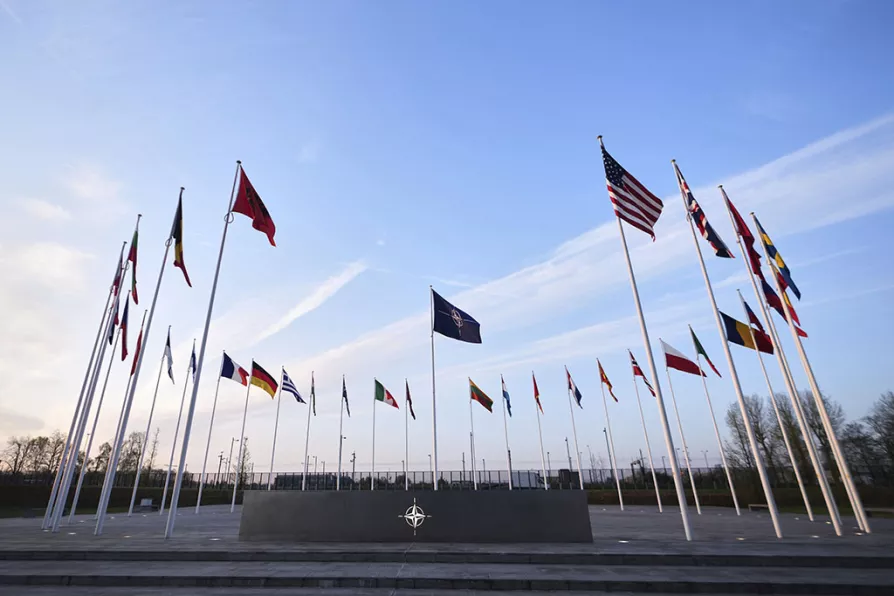As the RMT Health and Safety Conference takes place, the union is calling for urgent action on crisis of work-related stress, understaffing and the growing threat of workplace assaults. RMT leader EDDIE DEMPSEY explains

 Flags of Nato member states fly at Nato headquarters
Flags of Nato member states fly at Nato headquarters
IT IS OF immense concern that the British government has succumbed to the demands of the Trump administration and agreed to increase military spending from 2 to 2.5 per cent of GDP in 2027 and then to 3 per cent in the next parliament.
This at a time when poverty is rising and deepening in Britain with one in three children and a quarter of adults living in poverty. So far, our government has not taken measures to alleviate these conditions and indeed attacks on welfare are set to continue.
Already, most pensioners have lost the winter fuel allowance and the two-child limit on benefits remains in place. Disabled people are being threatened with £5 billion cuts. Inflation is threatening to rise again under the pressure of water, energy and other costs under conditions where the level of wage rises are already falling. This will hit all workers, and particularly lower-paid ones. And government funding to tackle climate change is minimal.

In the conclusion of his two-part article, PETER MERTENS reveals that while global military spending hits $2.7 trillion with European arms company profits soaring 1,000%, €1 invested in hospitals creates 2.5 times more jobs than weapons

In the first half of a two-part article, PETER MERTENS looks at how Nato’s €800 billion ‘Readiness 2030’ plan serves Washington’s pivot to the Pacific, forcing Europeans to dismantle social security and slash pensions to fund it












